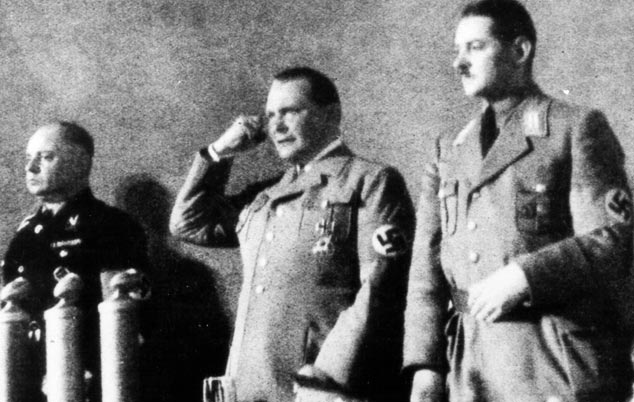
At the end of the "Party Rally of Freedom" in 1935, the Reichstag is summoned to Nuremberg. It is to adopt a "Reich Flag Act," which will make the swastika the official flag of the Reich and its military. Tactical considerations and attitudes lead Hitler to submit two additional bills to the Reichstag that have been under debate for some time: a "Reich Citizens' Act" (a citizenship act affecting Jews) and a "Racial Separation Act" ("Act for the Protection of German Blood and German Honor"). These quickly become known as the "Nuremberg Laws."
The "Reich Citizens' Act" establishes a new "Reich citizenship" with "full political rights" for nationals of "German or related blood." Jews, as mere "nationals," are demoted to second-class citizens. The "Blood Protection Act" forbids marriage between Germans and Jews, and imposes jail or prison sentences – always to be served by the man – for extramarital sexual relations between them. The definition of who is a Jew within the meaning of these laws is laid out later in the First Implementing Regulation to the Reich Citizens' Act. A Jew is anyone who has four or three Jewish grandparents ("full" and "three-quarter" Jews), while persons with two Jewish grandparents ("half" Jews) are to be considered Jews only in certain cases.



